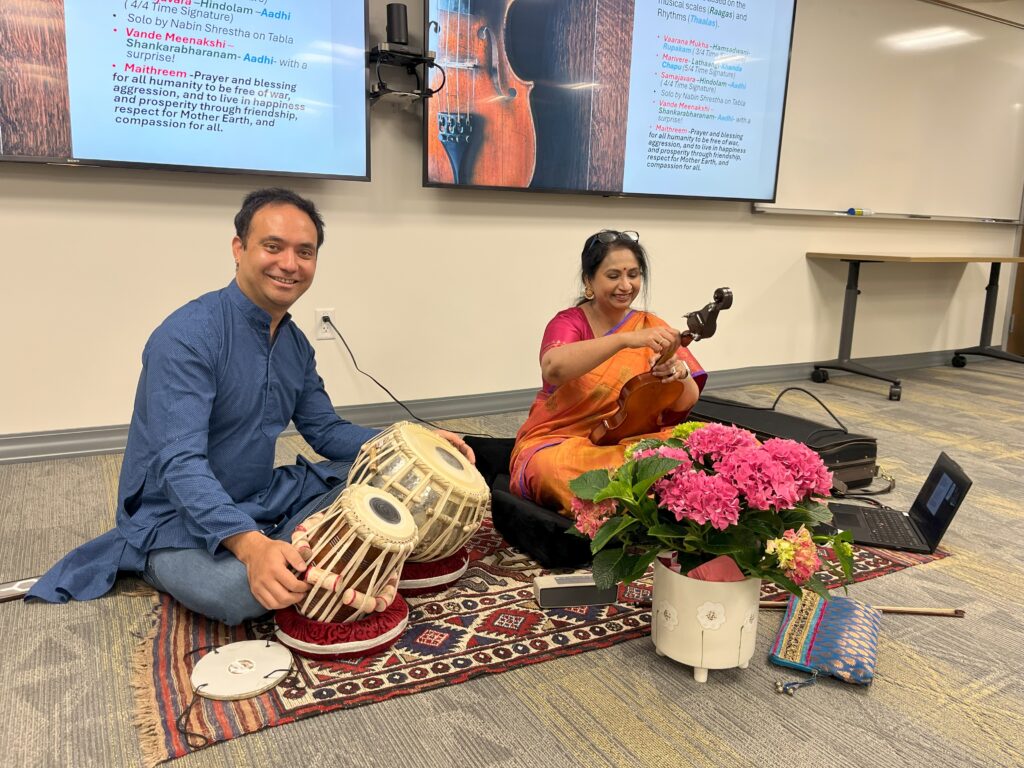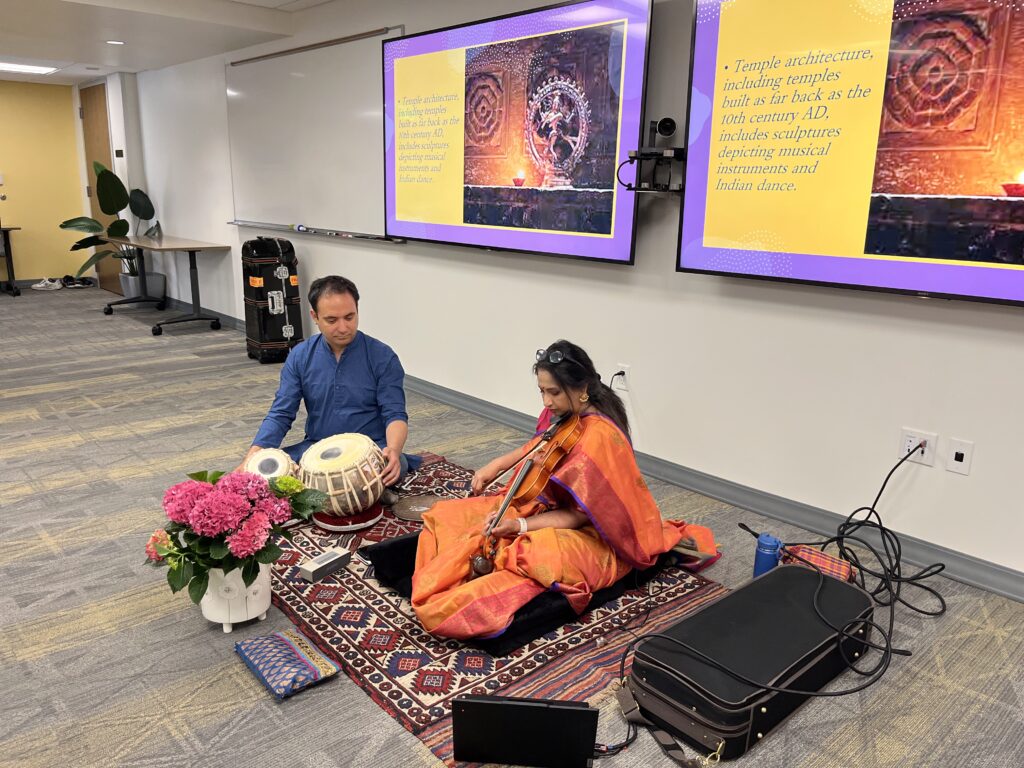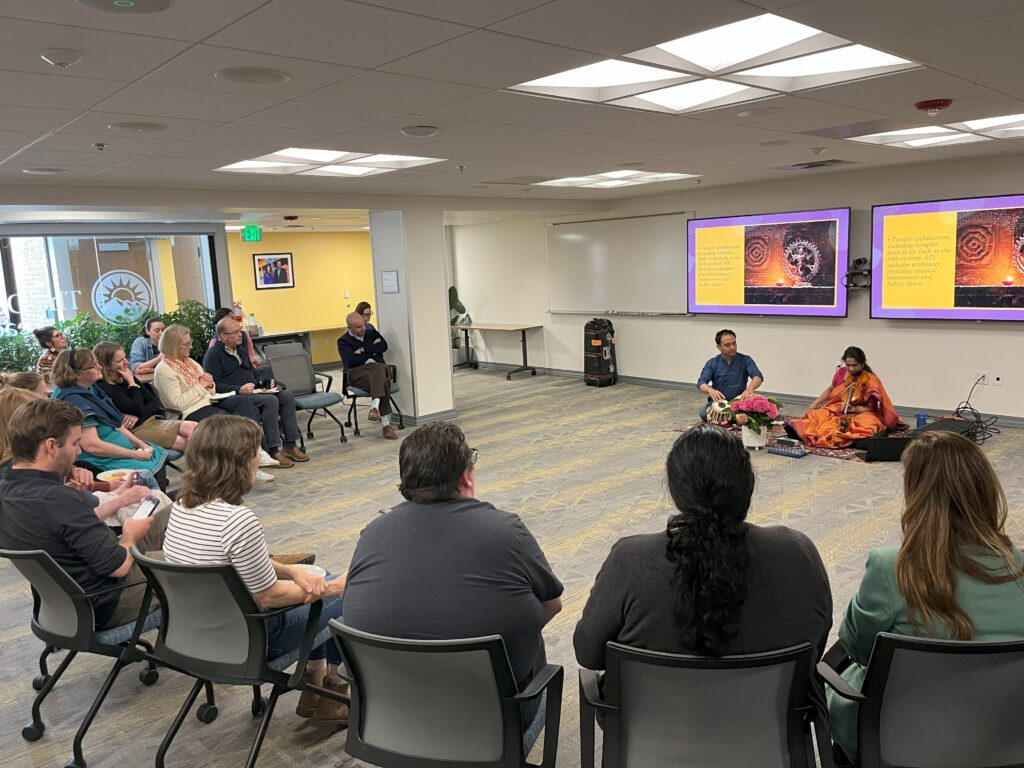We are extremely fortunate to have so many talented people on our staff who share their gifts with the world.
As we celebrate Asian American, Native Hawaiian, and Pacific Islander (AANHPI) Heritage Month we wanted to highlight some of the folks who make The Denver Foundation a beautiful and interesting place to be a part of.
These are just a handful of the ways we celebrate a diverse array of cultures, experiences, and knowledge. Hear it from our team, in their own words.
Phuong Do
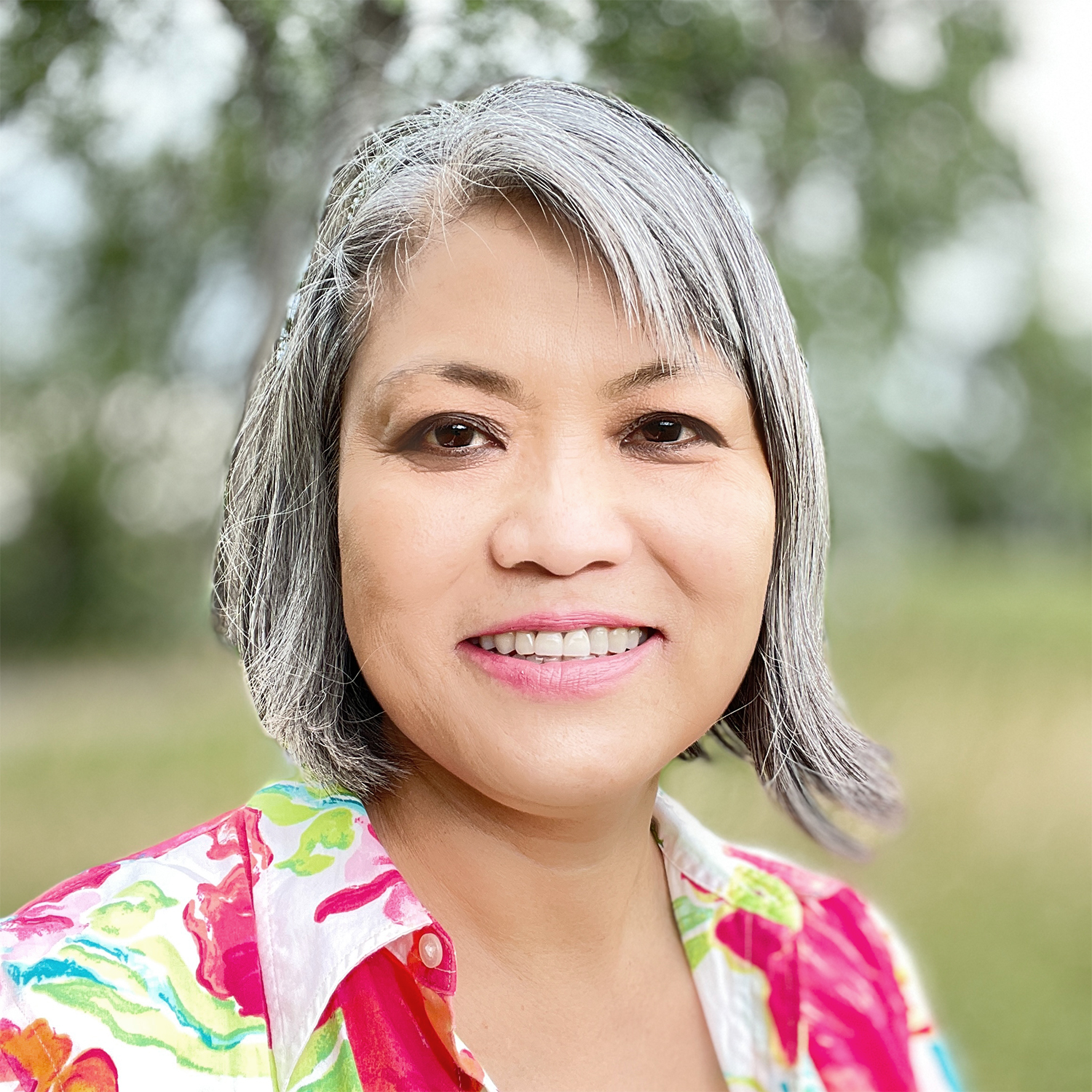
The photographic series “Self + Family” was part of a group exhibition of four diasporic artists at Landmark Arts gallery at Texas Tech University, Lubbock, Texas, curated by Kevin Chua, Associate Professor of Art History.
The show commemorates fifty years after the fall of Saigon on April 30, 1975, when North Vietnamese communists took control of South Vietnam. Vietnam, Cambodia, and Laos, once known as Indochina, are linked historically by French colonization from the late 1800s to the US war in Vietnam through 1973.
Once the communists took over Vietnam, the neighboring countries, Laos and Cambodia, also fell under communist and authoritarian rule. This event cascaded a refugee crisis spanning over 3 decades, with 1.2 million refugees from Vietnam, Cambodia, and Laos being resettled in the United States1. Notably, over 60% of the refugees were from Vietnam.
My family was among the first wave of refugees resettled in the U.S in 1975. We were not Vietnamese refugees but Vietnamese living in Laos who became refugees. My parents met in Laos, where I was born and raised until the age of eleven. My maternal side of the family migrated from Vietnam to Laos in the mid-1950s. My maternal grandparents worked for French families during the French occupation of Vietnam. My grandfather was a cook and my grandmother a housekeeper.
- Phuong M Do, Grants Administrative Associate
Although the French military withdrew from Vietnam in 1954, they maintained a military camp in a small village in Laos called Seno. My maternal grandparents, with their five children, moved to Seno to continue to work for the French. My father, at age 17, went to Seno around the same time to work in the military camp.
Because he was a student in a French military school in South Vietnam, he was able to get a reference for work in Seno. The military camp closed in 1964, the year I was born, and my maternal grandfather passed away. After his funeral, my parents, along with my mother’s family, moved to Vientiane, the capital city of Laos.
As the U.S started withdrawing troops in 1973, there was widespread fear of an impending communist takeover of Vietnam. In 1974, my mother’s family began the process of migrating to France. The men went first to find jobs and a place to live, then sent for their families. By the end of 1974, all of my mom’s family, her brothers and sisters with their spouses and children, and her mother had left for France.
In July 1975, my family left Laos, travelled through Thailand, the Philippines, and Guam, ending up in Camp Pendleton in San Diego for a couple of months, before we were resettled in Denver in October 1975. My father had lost contact with his family in Vietnam and had not seen them since he left for Laos in 1954. Over 45 years later, in 2000, he met his brother and sister in North Vietnam.
The Self + Family series examines displacement and fragmented family history. The photographs presented were made between 1998 and 2002 in Vietnam, France, and Colorado. Embedded in them are experiences of loss, survival, and resilience reverberating through me as I look out from inside the photograph, attempting to reconstruct my family history.
“My story is personal but not unique, in the same way that every American has a personal story of being American through their heritage and experience. To celebrate AANHPI Heritage is to embrace and appreciate the multiplicity of identities, experiences, and perspectives that expand our curiosities and deepen our connections to each other.” – Phuong M Do, Grants Administrative Associate
While many of you may know Phuong as the Grants Administrative Associate here at The Denver Foundation, Phuong M Do is an artist and photographer. She received a Master of Studio Art-Photography from New York University in 2002, and is currently based in Denver, Colorado.
Her work revolves around questions of displacement and identity. She creates images that expand her sense of self beyond ethnic identification and place of citizenship. Place exists for her as memories that are deconstructed and recomposed via the medium of photography; such memories are bound together by loss. The ability of photography to bind and archive memory runs through her work.
She received a Fulbright Fellowship to Vietnam in 2004, and has exhibited in New York, Chicago, Los Angeles, Tulsa Oklahoma, Ann Arbor Michigan, Rochester NY, Boston, Shanghai, Bangkok, Berlin, London, Manila, and Ho Chi Minh City. Her series “Self + Family” was shown in Changing Identity: Recent Works by Women Artists From Vietnam, a landmark traveling exhibition from 2007-2009 organized by International Art & Artists.
Priya Hariharan
Priya Hariharan, our senior accountant, and guest artist Nabin Shrestha recently shared a stunning South Indian classical music performance with our team. Priya played the Carnatic (South Indian Classical) violin, and Nabin accompanied Priya on the classical Tabla (North Indian Classical Percussion).
They shared the history behind the music, including the Raagas (musical scales), Thaalas (rhythmic cycles), and the background of each piece. The performance ended with Maithreem Bhajatha, a song about the well-being of all humanity—calling for a world without war or aggression, and guided by friendship, compassion for all, and respect for the Earth.
- Priya Hariharan, Senior Accountant
Priya started her musical journey at the age of six, learning Carnatic vocal music from her mother Lakshmi Narayanan, followed by Carnatic violin instruction from the late Shri Ramakrishna Sharma in Bombay (now Mumbai). She took advanced music lessons from the legend Padmabhushan Lalgudi Shri Jayaraman, whose training gave Priya the ability to dive deeply into communication and conversations through music and sound, with in-depth analysis of the journey and evolution of Carnatic classical music.
Priya established the Bhairavi School of Music in 2001 and is the founder and director of the school. In 2008, to further solidify Carnatic Music in the Denver community, she formed the Rocky Mountain Thyagaraja Utsavam, which grew in leaps and bounds, and in 2011, ran the event under the auspices of the then-nascent organization, Colorado Fine Arts Association, or CFAA.
Priya has been propagating Carnatic Music at various universities in Colorado, such as Lamont School of Music, Kent School, University of Colorado, and Metro State University. Priya has collaborated with artists of other genres, including rock, flamenco, and fusion. Priya has been featured in the Asian Avenue magazine for her work in Carnatic music and was awarded the community leadership award by NetIP Denver in 2014.
Priya believes a community is enriched through diversity in heritage, thought, and culture. For a community to thrive, we go beyond tolerance and celebrate our differences that make us unique. She feels fortunate to be part of a community that sees art as an invaluable resource for upliftment.
Sachi Ishida
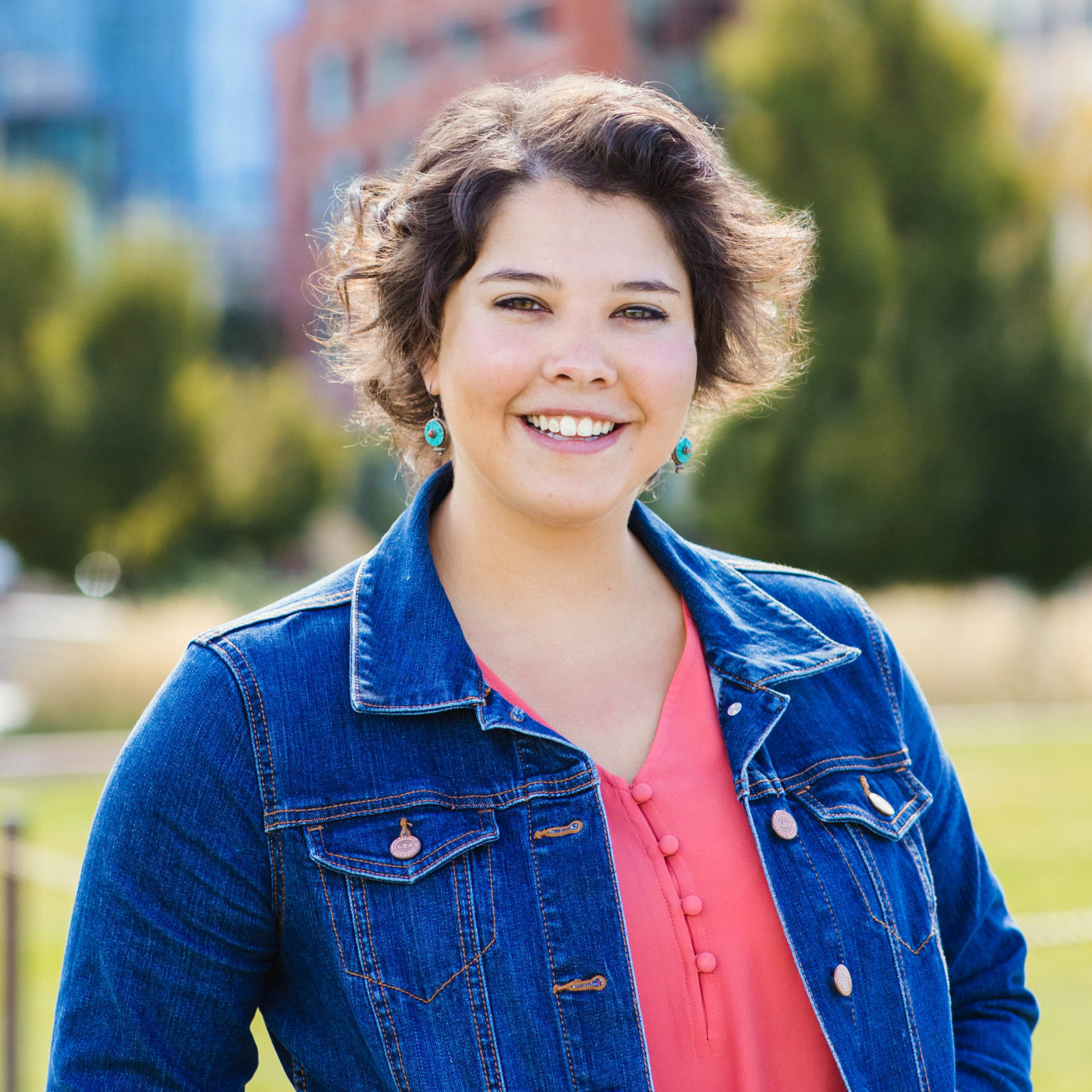
My dad first immigrated from Japan to the US in his early twenties, though, that was not his original intention. He was supposed to land in LA, greyhound across the US to see the skyscrapers, and head back home to continue his job as a carpenter.
But what he found was a country ripe with opportunity and numerous kind individuals who were willing to help him along the way. He eventually met my mom, a white lady from the East Coast who matched his sense of adventure, and they embarked on a journey of raising biracial children in the predominantly white suburbs of Chicago.
Many years later, after moving to Colorado and graduating from Colorado College, I was at a moment of significant change, as most students face after graduation. I was moving, starting a full-time job, and navigating a new normal.
What I didn’t expect was a deep desire and longing to find a new Japanese American community, but this time one that wasn’t defined by my dad or his connection to Japan. For all I had come to understand about my racial identity, I didn’t realize there would be an element of redefining it every time I moved to a new city.
- Sachi Ishida, Sr. Director of Operational Excellence
As sometimes happens, the stars aligned. The Denver Foundation had been in talks with the Sakura Foundation about them becoming a Supporting Organization. The Sakura Foundation’s mission is to celebrate and share Japanese and Japanese American culture and heritage in order to promote a more compassionate, resilient, & equitable society.
Out of curiosity, I did some digging and found the Sakura Foundation ran a program called the Mirai Generation Leadership Program (MGLP) which nurtures, connects and supports emerging leaders who are passionate about and dedicated to the Japanese American community and its culture. We had to pivot to online as the program was just getting started when Covid hit, but nevertheless, I was overwhelmed by the openness to learn about, honor, and become a part of the thriving Japanese American community in Denver through the Sakura Foundation.
After the program wrapped, the stars aligned again as I had the honor of joining the Sakura Foundation Board as The Denver Foundation representative. I am now in my fourth year serving as a Board member, and this year, as the Board Vice President. I continue to be in awe of the breadth and depth of the Japanese American community, supporting everything from young students to Nisei veterans to speaking out when history seems to be repeating itself. I am proud to be a part of, and stand by, this community, and I am grateful to the Sakura Foundation for helping me find my home away from home.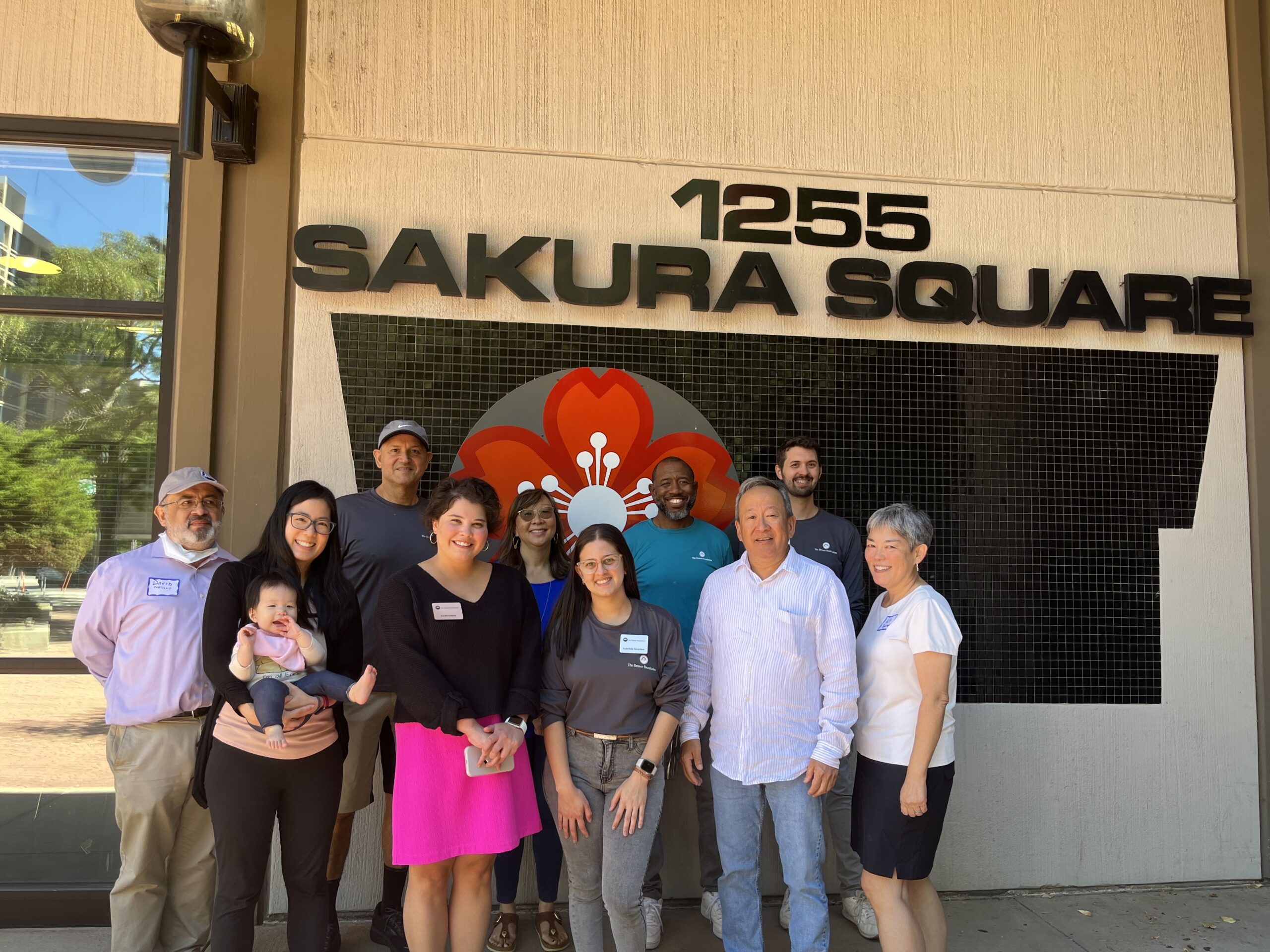
Lastly, I’d like to invite everyone to the following events supported by the Sakura Foundation.
First, the Annual Denver Cherry Blossom Festival taking place June 21 and 22, 2025, downtown at Sakura Square – this is a free event aimed at celebrating Japanese heritage and culture through live entertainment, food and drink, a marketplace and informative exhibits and demonstrations.
Second, the Spirit of Japan taking place September 12,13, and 14, 2025, downtown at Sakura Square – this is a ticketed food and spirits event featuring traditional Japanese street and festival food. There are lots of opportunities to volunteer at both events as well – I will likely be in a booth selling some festival swag or whipping up some Takoyaki – I look forward to seeing you there!


